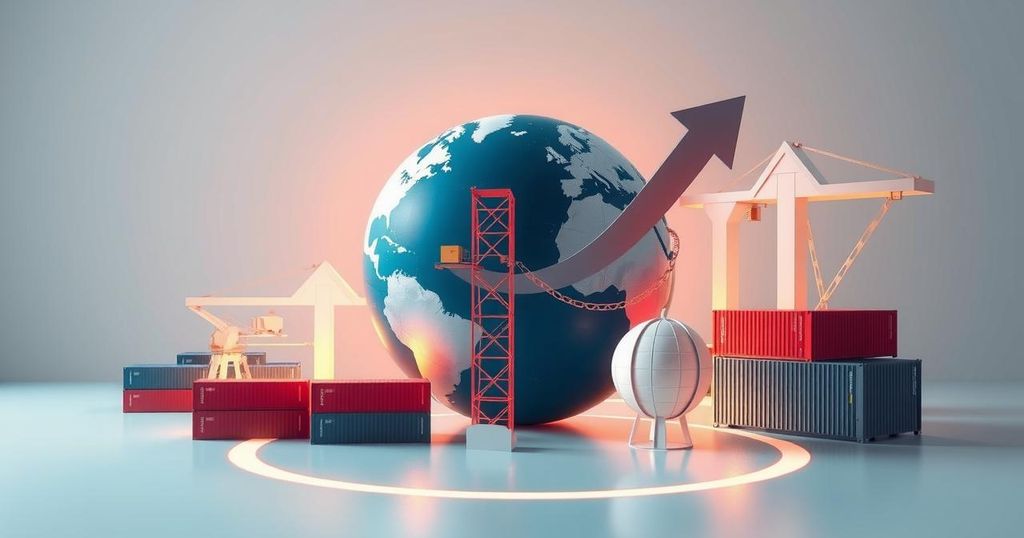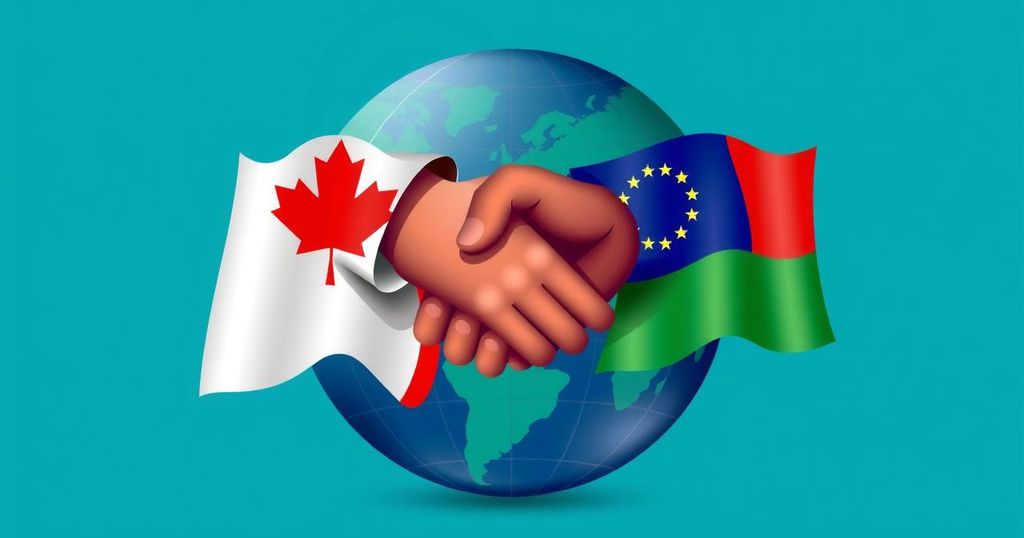Understanding Trump’s Tariffs: Impacts on Trade and U.S. Consumers
President Trump has enacted tariffs on imports from Canada, Mexico, and China, asserting economic protection for Americans and addressing drug trafficking issues. He has announced additional tariffs on EU products, with China, Canada, and Mexico responding with possible retaliatory measures. These tariffs are expected to increase consumer prices significantly, posing inflation risks and affecting various industries.
President Donald Trump has recently imposed tariffs on goods from key trading partners, including Canada, Mexico, and China. He justified these tariffs as necessary for protecting American citizens against illegal immigration and the influx of fentanyl. Moreover, he has hinted at additional tariffs on European Union goods as well as a potential across-the-board tariff on all imports.
Tariffs function as taxes applied to imported goods, with the most prevalent form being a percentage of the product’s value. Currently, Trump has implemented a 25% tariff on imports from Canada and Mexico and a 10% tariff on Chinese products. Typically, the additional costs incurred by importers are transferred to consumers, resulting in higher prices.
Trump’s rationale for imposing tariffs is multifaceted, including the intent to enhance U.S. manufacturing and economic growth. He has stated that tariffs will not only protect jobs but also increase tax revenue. The administration claims that rampant fentanyl production and trafficking from Mexico and China necessitate these economic measures.
Following Trump’s announcement, Canadian Prime Minister Justin Trudeau expressed his opposition by announcing retaliatory tariffs on a significant amount of U.S. goods. Meanwhile, Mexican President Claudia Sheinbaum has instructed economic officials to develop protective measures in response. China has also condemned the tariffs, warning that they will take necessary countermeasures against this decision.
Certain goods will see significant price increases due to these tariffs. For instance, costs on Mexican fruits and vegetables, as well as Canadian steel and lumber, are expected to rise. Furthermore, the American automotive sector could face severe consequences, with average vehicle prices projected to increase by $3,000 due to heightened import taxes.
Beyond North America, Trump is contemplating tariffs on the European Union and the United Kingdom, viewing their trade practices unfavorably. He remarked that a trade deal with the UK could be negotiated, whereas the EU might face imminent tariff applications. Business Secretary Jonathan Reynolds believes that the UK should be exempt due to the trade surplus in favor of the U.S.
Economists caution that the new tariffs could lead to inflationary pressures affecting U.S. consumers. Historical data from previous tariffs indicate that consumers often bear the brunt of these costs, raising prices across various sectors. Analysts predict that inflation rates might rise significantly, potentially reaching as high as 4% due to these economic measures.
Tariffs are a critical trade policy tool used by governments to influence economic activity. They affect not only the prices of imported goods but also can lead to retaliation from other countries. This current wave of tariffs implemented by President Trump represents a broader strategy to reshape trade relationships and address concerns regarding job protection, domestic manufacturing, and illegal imports. The implications of these tariffs extend beyond mere economics, reflecting deeper geopolitical tensions and strategies among global trading partners.
The recent tariffs imposed by President Trump on goods from Canada, Mexico, and China aim to protect American jobs and manufacturing while addressing the drug crisis; however, these tariffs are likely to lead to increased consumer prices. The potential for retaliatory tariffs from affected countries may escalate economic tensions further, while the long-term impact on inflation and U.S. industries remains to be seen. The political landscape surrounding these tariffs underscores significant international relations complexities.
Original Source: www.bbc.com








Post Comment